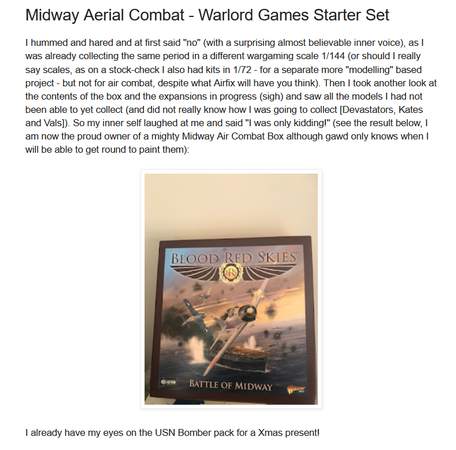On This Day In History
13 December 1939: The Battle of the River Plate
Henry Harwood – Hero of the River Plate

Our Price – £20.00 GBP
RRP – £25.00 GBP
Henry Harwood is best known for his destruction of the Admiral Graf Spee at the Battle of the River Plate in December 1939 about which Winston Churchill, then First Lord of the Admiralty, said: 'This brilliant sea fight takes its place in our naval annals and in a long, cold, dark winter it warmed the cockles of the British hearts'. Despite that great victory Harwood remains, until now, one of three great British naval commanders of the Second World War who is without a biography.
Admiral Sir Henry Harwood's wider naval career was remarkable and epitomised the Royal Navy in the first half of the twentieth century. He became a naval cadet in 1903, specialised as a torpedo officer in 1911, and for his services in the First World War was awarded the OBE in 1919. He was one of the Navy's intellectuals, gaining first class passes in all his examinations and, during his interwar service on the South American station, learning Spanish. During his service in important staff appointments and at the Imperial Defence College, he made a particular study of international relations and, in the light of perceived fallings at sea in the First World War, of tactics and command. He was thus well-qualified when in 1936 he became commodore in command of the South American division of the America and West Indies station, and well prepared to meet and defeat the German pocket battleship Admiral Graf Spee with his inferior force of cruisers in 1939.
He was promoted assistant chief of the naval staff at the Admiralty, and, in 1942, appointed Commander-in-Chief, Mediterranean, in succession to Sir Andrew Cunningham. Then, commanding a fleet too enfeebled for its tasks, he found Montgomery plotting against him and Churchill losing confidence in him before being relieved of his command. Invalided out of the Navy in 1945, he was wrongly blamed by some for the Navy's perceived failings in the Mediterranean; he died at a relatively young age in 1950.
The author has been given exclusive and unique access to the Harwood family archives and, in the light of these previously unpublished papers, has set about rehabilitating the character, career and achievements of this great British admiral. For all historians and enthusiasts of the Royal Navy in the Second World War, this will be essential reading.
Battle of the River Plate – A Grand Delusion

Our Price – £12.99 GBP
'Graphic, thought provoking – highly recommended.' Britain at War
'This author has made it all so very riveting, it really is a book which is hard to put down until finished.' Royal Geographical Society
The Battle of the River Plate was the first major naval confrontation of the Second World War, and it is one of the most famous. The dramatic sea fight between the German pocket battleship Admiral Graf Spee and the British cruisers Exeter, Ajax and Achilles off the coast of South America caught the imagination in December 1939. Over the last 60 years the episode has come to be seen as one of the classics of naval warfare. Yet the accepted interpretation of events has perhaps been taken for granted and is ripe for reassessment, and that is one of the aims of Richard Woodman's enthralling new study.
The Battle of the River Plate

Our Price – £14.00 GBP
RRP – £19.99 GBP
At dawn on 13 December 1939, smoke was seen on the horizon; HMS Exeter was told to close in and investigate. Two minutes later a dramatic signal was sent from the British cruiser – 'I think it is a pocket battleship.'
It was. The Deutschland-class heavy cruiser Admiral Graf Spee, marauder of the South Atlantic shipping, had sailed into a trap. Three smaller British cruisers closed in on a German warship which, so Hitler had boasted, could out-sail any ship powerful enough to damage her, and out-gun any ship able to keep up with her – an invincible ship.
So began the Battle of the River Plate, story which has its duplicates in British naval history, but which nevertheless brought pride and inspiration into the hearts of a nation unwillingly at war once again.
A terrible battle was fought that day off the coast of South America, a naval encounter in the finest Nelson tradition – and true to that tradition, victory went to the men with the finest armament of all, courage.
This edition is presented with an Appendix containing the official despatch detailing the Battle of the River Plate.
Langsdorff and the Battle of the River Plate

Our Price – £19.99 GBP
This compelling new study of the Battle of the River Plate concentrates on Kapitän zur See Hans Langsdorff, the commander of the German pocket battleship Graf Spee – it is written from his point of view. The story of his mission at the start of the Second World War to prey on merchant shipping is graphically retold, and Langsdorff's command decisions are the primary focus of David Miller's gripping narrative.
He considers in vivid detail the factors Langsdorff had to consider as he assessed the situation of his ship and choose his course of action. He describes the intelligence Langsdorff received and his knowledge of the position and strength of the forces of the Royal Navy that were arrayed against him. Langsdorff's interpretation of his mission and the tense calculations he had to make in order to carry it out are the essential elements of this dramatic story.
Langsdorff, operating alone and thousands of miles away from home and with no prospect of support, had to grapple with the enormous burden of a lone command. He made grave mistakes, and these are ruthlessly exposed. But this fascinating re-examination of his actions and his leadership does nothing to diminish his reputation as a brave and honourable officer.








